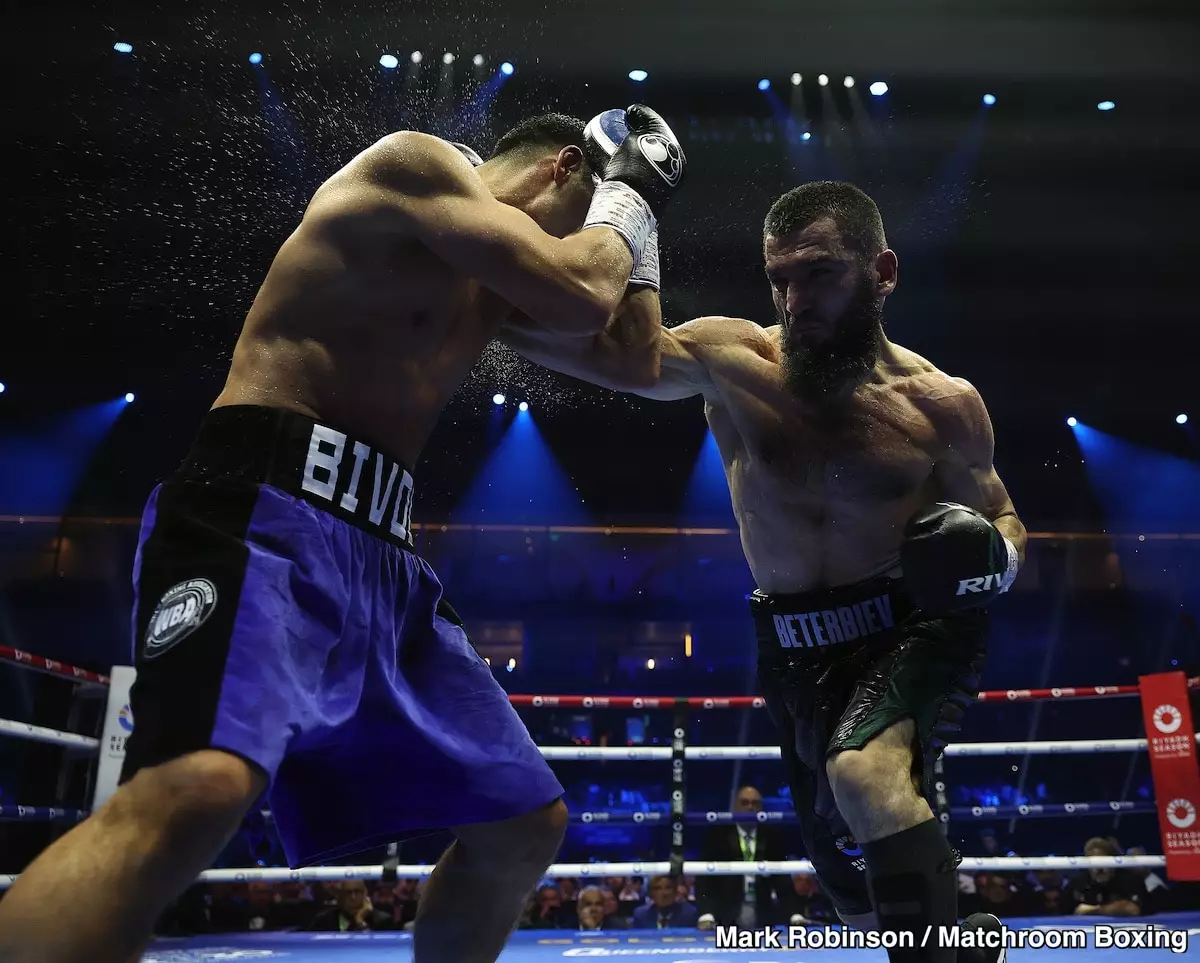The aftermath of Dmitry Bivol’s recent bout against Artur Beterbiev has sparked intense discussions in boxing circles, particularly about the strategic implications of Bivol’s post-fight admissions. Bivol’s acknowledgment of being affected by Beterbiev’s punches—even when ostensibly blocked—has raised eyebrows, including those of two-division world champion Andre Ward. Ward’s concerns reflect a broader apprehension regarding fighters revealing vulnerabilities, especially when a rematch looms on the horizon.
Bivol faced Beterbiev in a titanic clash at the Kingdom Arena in Riyadh, where he ultimately lost via a majority decision after twelve grueling rounds. The fight was tightly contested for much of its duration, but Beterbiev’s relentless pressure and undeniable power allowed him to pull ahead in the last rounds. This strategic shift exemplifies how finely poised a boxing match can be, often hinging on the performances in just a few decisive moments.
Ward’s critique of Bivol centers on the danger of openly discussing one’s physical struggles in the ring. The former champion suggests that Bivol should maintain a level of ambiguity about his weaknesses, particularly with the potential for a rematch in 2025. A fighter’s mental game is crucial, and revealing too much can empower the opponent’s strategy going forward.
Bivol’s admission, while possibly an honest reflection, runs the risk of undermining his tactical position for any future encounters. The visibility of weakness can galvanize an opponent’s confidence and alter their game plan in preparation for a rematch. Fans and analysts alike dissected the fight, with some arguing that Bivol, during certain stretches, outperformed Beterbiev by effectively blocking punches and employing superior footwork.
However, the jab of logic counters this perspective: despite any defensive maneuvers, the damage still accumulated. Bivol’s subsequent interview detailed the toll Beterbiev’s punches had on him, most notably from body shots that seemed to sap his energy in the later rounds. The mental fortitude of a champion is tested not just by physical endurance but by the ability to guard against revealing critical insights into one’s performance and strategy.
The rematch presents Bivol with a conundrum: how to strike the right balance between aggression and defense. Trainer Stephen Edwards articulated the tightrope that Bivol must walk in approaching future fights. During the bout, Bivol found moments of success when he let his fists fly, yet this tactic led to vulnerabilities that Beterbiev quickly exploited.
A pivotal moment in the fight came during the seventh round when Bivol surged forward, showcasing his prowess through a flurry of effective strikes. Yet, his desire for further success led to an opening that Beterbiev capitalized on, ultimately shifting the momentum. Edwards’ analysis suggests that the seventh round encapsulated Bivol’s broader battle; moments of brilliance were compromised by overreach.
As Bivol prepares for any possible rematch, the lessons from this experience are invaluable. The key will be to implement a disciplined level of aggression—a strategy that engages Beterbiev while avoiding exposure to the full brunt of his power.
Furthermore, the broader implications of Bivol’s fight raise questions about the strategic arsenal of today’s boxers. Each fighter must continually adapt and reassess their tactics in face of opposition. Can Bivol come back stronger, with an upgraded game plan that marries his defensive skills with a more assertive offensive approach? Or will the looming threat of Beterbiev cause him to retreat in fear of being caught out again?
As training camps gear up for potential rematches, the mindset of both fighters will play a significant role in shaping their strategies. Bivol must enter with a willingness to embrace risk but also with the wisdom to recognize when to hold back. Overemphasis on aggression could lead to exploitable weaknesses; however, a too-conservative approach could make him an easier target for Beterbiev’s heavy hands.
The clash between Bivol and Beterbiev has provided a wealth of material for study, reflection, and debate. Watching how Bivol evolves in his approach while learning from his encounters will be crucial for any hopes of redemption in a potential rematch. Every punch, every strategy, and every admission carries weight in the ring, shaping the trajectory of a fighter’s career. The world will be watching closely as Bivol navigates the complex landscape of high-level boxing—both inside and outside the ring.

